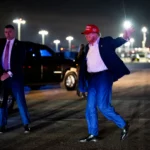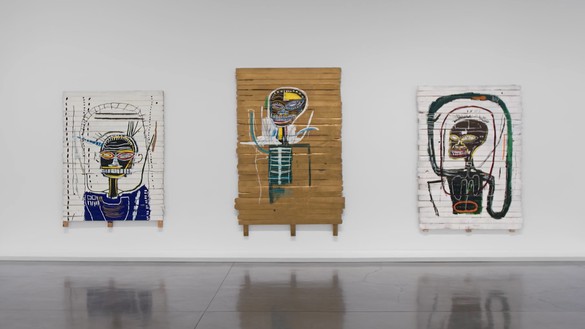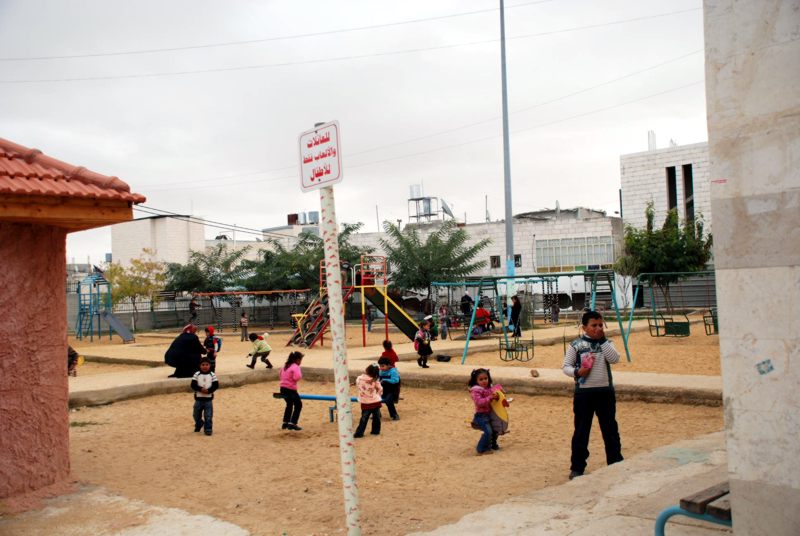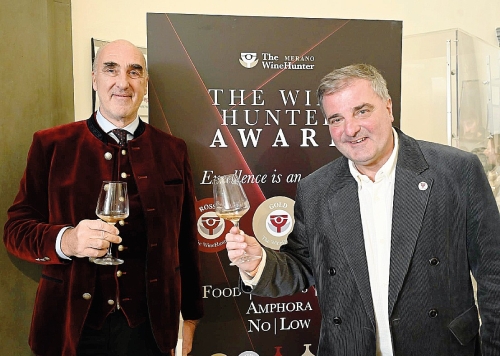
Trump, who has celebrated violent protests, cheers campus crackdowns
7 Maggio 2024
Power shifts in the Middle East
7 Maggio 2024Made on Market Street | Curated by Fred Hoffman with Larry Gagosian
Beverly Hills
About
Gagosian is pleased to announce Made on Market Street, the first exhibition focused exclusively on works that Jean-Michel Basquiat produced in Los Angeles. Curated by Fred Hoffman with Larry Gagosian, the exhibition will be on view from March 7 to June 1, 2024. With exhibition design by Stefan Beckman, Made on Market Street features loans from the Estate of Jean-Michel Basquiat; Nicola Erni Collection, Steinhausen, Switzerland; the Broad Art Foundation, Los Angeles; Museum Brandhorst, Munich; Museum of Modern Art, New York; Whitney Museum of American Art, New York; and other public and private collections.
Between November 1982 and May 1984, Basquiat produced approximately a hundred paintings, numerous works on paper, and six silkscreen editions in Venice, California. For an artist closely affiliated with the New York art scene of the 1980s, Basquiat was extraordinarily prolific in Los Angeles. Made on Market Street reflects on this consequential era by bringing together nearly thirty works—several of which are among his most important paintings. Larry Gagosian notes, “Los Angeles has always been a great city for artists and Jean-Michel seemed to find it a refreshing change from New York. While the immensity of his talent was immediately apparent, it was nonetheless a highlight of my own career to work with him, to introduce him to Los Angeles, and to witness the amazing impact that his art and legacy have made on our culture.”
After first meeting Basquiat in 1981, Gagosian invited him to Los Angeles. Basquiat’s solo exhibition with Larry Gagosian Gallery in LA—the first time his work was presented on the West Coast—opened in April 1982, immediately following his first solo show in New York at Annina Nosei’s gallery. The Los Angeles exhibition was seen as the arrival of a significant voice by the public and collectors alike. In November 1982 Basquiat returned to California, living and working at Gagosian’s residence on Market Street, a three-story structure with an interior courtyard open to the light and air from the beach nearby.
That same year, Basquiat met Fred Hoffman, who was running New City Editions, and together they would produce six editioned prints, including Tuxedo (1982) and Untitled (1983), large-scale silkscreen works on canvas. Featuring white text, sketches, and directional arrows on a black ground, Tuxedo contrasts with Basquiat’s intensely colorful paintings of the era, its dense collection of allusive phrases ascending to the crown at its top.
For Basquiat, working in Venice offered a reprieve from the distractions and pressures of the New York art scene. Many of the paintings he produced in Venice were shown at his next Los Angeles exhibition, which opened on March 8, 1983, at Larry Gagosian Gallery and presented approximately thirty paintings, including Hollywood Africans, Horn Players, Museum Security (Hollywood Meltdown), Luna Park, Untitled, and Year of the Boar(all 1983). Made on Market Street will present many of these pivotal works together again for the first time.
A highlight of the exhibition is Hollywood Africans, a work that portrays Basquiat alongside fellow artists Toxic and Rammellzee as new Black celebrities in a palette that evokes the bright Southern California sun. Fusing drawing, painting, and text across three panels, Horn Players pays homage to jazz greats Charlie Parker and Dizzy Gillespie. Underscoring the importance of music to Basquiat, it conveys the vitality of bebop in a visual style informed by contemporary graffiti and hip-hop. The same year it was painted, Basquiat would produce the influential hip-hop track “Beat Bop” on his own Tartown Record label, featuring Rammellzee and K-Rob.
In the summer of 1983, Basquiat was drawn back to Los Angeles. He returned to Market Street, this time establishing his own studio a few doors down and remaining there until late in the spring of 1984. One night, while Basquiat was working, he went outside to a fenced-in courtyard just behind the studio, where he encountered an unhoused person sleeping. After this incident the courtyard’s fence was removed, but instead of disposing of the wooden slats Basquiat integrated them as supports for some of his most iconic paintings—Flexible, Gold Griot, and M (all 1984), all of which will be exhibited as a group in Made on Market Street for the first time since they were created. With Flexible, Basquiat expanded his portrayal of the Black male, presenting a larger-than-life figure whose elastic, expressive arm gesture combines the artist’s interests in anatomy, symbolism, and qualities he characterized as “royalty, heroism, and the streets.”
Made on Market Street is accompanied by a catalogue that reproduces the exhibited works together with archival material, including installation images from the 1982 and 1983 exhibitions at Larry Gagosian Gallery, historical ephemera, and exhibition reviews, as well as previously unpublished photographs of Basquiat in his studio. A conversation between Larry Gagosian, Fred Hoffman, filmmaker Tamra Davis, and the artist’s sisters, Lisane Basquiat and Jeanine Heriveaux, will be featured, along with an essay where Hoffman reflects on the works that Basquiat produced in Los Angeles, discussing the complex symbolism and restless innovation that permeated his oeuvre.
Larry Gagosian Gallery in Los Angeles presented three exhibitions with Basquiat during the artist’s lifetime: Jean-Michel Basquiat: Paintings at 619 North Almont Drive, April 8–May 8, 1982; Jean-Michel Basquiat: New Paintings at 510 North Robertson Boulevard, March 8–April 2, 1983; and Jean-Michel Basquiat at 510 North Robertson Boulevard, January 7–February 8, 1986. Made on Market Street is the seventh exhibition of Basquiat’s work that Gagosian has presented since the artist’s passing in 1988.





